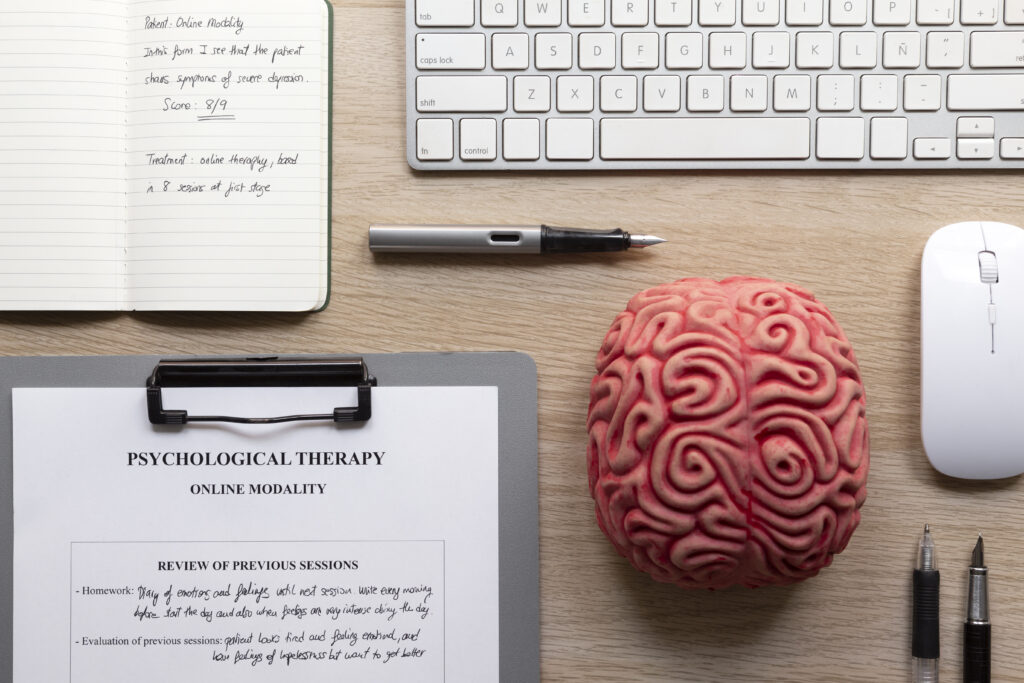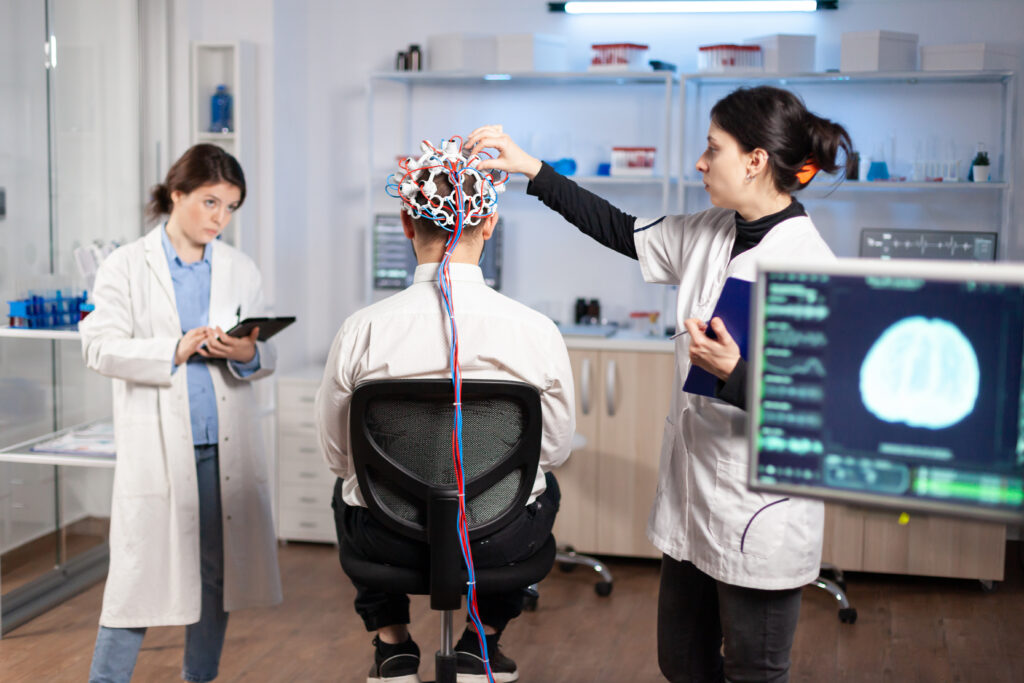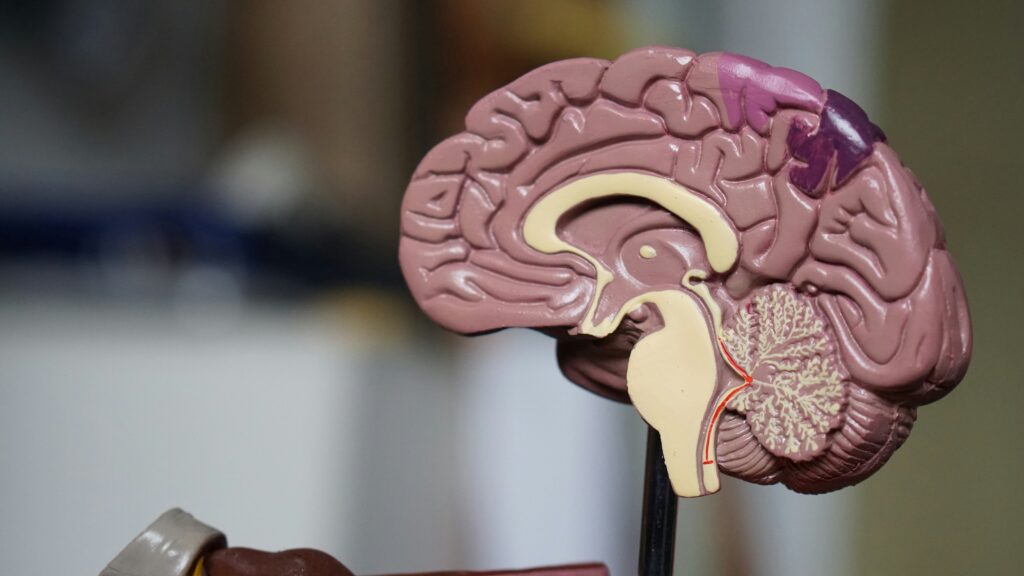Suffering a brain injury can profoundly affect various cognitive functions, including decision-making, information processing, and interpersonal interactions. When such injuries result from the actions of another party, it’s crucial to seek compensation for the resulting losses.Yet, articulating and documenting symptoms such as memory impairment, difficulty concentrating, or impulsivity can pose challenges. In such instances, neuropsychological testing emerges as a valuable tool, providing insights that aid both you and your medical team in comprehensively assessing the impact of your traumatic brain injury (TBI). Additionally, this information equips your personal injury lawyer with vital evidence to advocate for your rights effectively.
Understanding Neuropsychology: What It Is
Neuropsychology delves into the intricate relationship between brain health and our emotional and behavioral responses. Our brain, a marvelously intricate organ composed of nerves and tissues, orchestrates our thoughts, emotions, and daily activities. However, when neurological disruptions occur due to factors like trauma, brain tumors, or conditions such as Alzheimer’s disease, it can lead to a range of emotional and intellectual alterations.
These changes can manifest in various forms, from subtle memory lapses and cognitive haziness to more profound shifts such as alterations in personality, impaired decision-making, and cognitive deficits. Given the diverse functions of different brain regions, the effects of neurological dysfunction can vary depending on the area affected. For instance, the temporal lobe plays a role in short-term memory, while the frontal lobe governs memory, decision-making, and judgment.
Consequently, the symptoms exhibited by individuals with brain injuries may encompass a wide spectrum, impacting areas such as thinking, speech, vision, memory, and interpersonal relationships. Understanding the specific effects of brain injury based on its location is crucial in formulating tailored treatment plans and interventions to support affected individuals in their recovery journey.
During a neuropsychological evaluation, your emotional and cognitive capacities are meticulously assessed and juxtaposed against benchmarks representing individuals of similar age, education, and background. This comprehensive assessment encompasses various facets, including:
- Cognitive and intellectual aptitudes, gauging your overall cognitive functioning and problem-solving abilities.
- Assessment of both short-term and long-term memory, evaluating your capacity to retain and recall information.
- Examination of executive functioning, which encompasses decision-making abilities and information interpretation skills.
- Evaluation of processing speed, assessing the rate at which you process and respond to stimuli.
- Analysis of concentration and attention levels, determining your ability to sustain focus and attention.
- Assessment of persistence and pace, evaluating your capacity to complete tasks efficiently and effectively.
- Evaluation of gross and fine motor skills, examining your physical coordination and dexterity.
- Analysis of visual-spatial skills, assessing your ability to perceive and interpret spatial relationships.
- Examination of emotional functioning, exploring your emotional responses and regulation capabilities.
- Identification of potential co-occurring conditions such as depression, anxiety, or post-traumatic stress disorder, which may influence cognitive performance.
- Verification of performance and symptom validity, ensuring the reliability and objectivity of the evaluation results, thus enhancing the overall credibility of the assessment process.
By meticulously examining these factors, a neuropsychological evaluation offers a thorough and objective assessment of your cognitive and emotional functioning, providing valuable insights that inform diagnosis, treatment planning, and intervention strategies.
Neuropsychological Testing: A Case Study on Brain Injury Assessment
A neuropsychological report serves as a critical tool in aiding medical professionals, legal representatives, and mental health providers in comprehensively understanding the ramifications of a brain injury. This understanding, in turn, facilitates the development of tailored treatment plans and supports legal efforts to secure rightful compensation for the affected individual.
Illustrating the practical application of a neuropsychological examination, consider the case of a young man with autism spectrum disorder who sustained a severe brain injury after being struck by a delivery driver’s vehicle while walking home from work. In the aftermath of the accident, the insurance company contended that the cognitive and memory deficits exhibited by the individual were attributable to his preexisting autism, casting doubt on the legitimacy of his claim.
To counter this argument, a multidisciplinary approach was adopted, involving collaboration with medical providers and a neuropsychologist. Through meticulous examination and documentation of the individual’s trauma-induced symptoms and limitations, the neuropsychologist provided crucial insights that bolstered the legal case. Armed with this evidence, negotiations ensued, culminating in a successful settlement for a substantial amount, thereby vindicating the individual’s rights and securing the compensation he rightfully deserved.
This real-world example underscores the instrumental role of neuropsychological assessments in substantiating legal claims and advocating for justice on behalf of individuals grappling with brain injuries. By leveraging the expertise of neuropsychologists alongside other professionals, it becomes possible to navigate complex legal landscapes and ensure that the needs of brain injury survivors are comprehensively addressed.
What Happens During a Neuropsych Evaluation?
During a neuropsychological evaluation, a team of clinicians, led by a trained neuropsychologist, administers a battery of tests designed to assess various cognitive functions, language skills, memory, mental processing, and other abilities. This comprehensive assessment entails a range of tasks, including:
- Providing information about your daily routine and symptoms through verbal communication.
- Demonstrating proficiency in reading, writing, math, and problem-solving.
- Identifying and interpreting visual images presented during the evaluation.
- Recalling information after a specified period, testing both short-term and long-term memory.
- Engaging in drawing tasks to assess visual-spatial abilities and fine motor skills.
- Solving puzzles or engaging in other task-driven activities to evaluate cognitive processing.
These tests may be administered orally, in written format, via computer-based platforms, or through task-oriented exercises. The specific tests employed during your evaluation will be tailored to your diagnosis, individual circumstances, and assessment goals.
It’s important to note that not all neuropsychologists specialize in brain injuries. Some may primarily focus on working with populations such as dementia patients. While these specialists offer valuable insights, selecting a neuropsychologist with expertise in brain injury is essential for obtaining a thorough and insightful evaluation. Therefore, when choosing a neuropsychologist, ensure that they possess a comprehensive understanding of and regularly work with individuals who have experienced traumatic brain injuries. This ensures that you receive the most relevant and effective assessment and intervention tailored to your needs.
How Much Time Does Neuropsych Testing Require?
A neuropsychological evaluation typically spans up to eight hours to ensure a thorough assessment of various cognitive functions and abilities. Throughout the evaluation process, you’ll have the opportunity to take breaks as needed to manage fatigue or feelings of overwhelm. In cases where prolonged testing may lead to exhaustion or diminished performance, the evaluator may opt to split the testing sessions over multiple days to ensure accuracy and reliability of results. This approach allows for a more comfortable and manageable testing experience while still obtaining comprehensive insights into your cognitive functioning and capabilities.
After Your Evaluation: What’s Next? -H2
Following the completion of your neuropsychological testing, the neuropsychologist will meticulously analyze your results, along with pertinent medical records and additional information, to craft a comprehensive report detailing your cognitive abilities and limitations. If the neuropsychological evaluation was conducted as part of your traumatic brain injury (TBI) care plan, the report will typically include treatment recommendations and referrals to specialized services such as speech therapy and counseling.
However, if the evaluation was requested by an insurance company, its purpose may differ. In some cases, such evaluations, known as “independent medical examinations,” may be used to challenge or diminish the validity of a TBI survivor’s legal claims.
For instance, the insurance company might contest your symptoms based on performance validity or symptom validity scores, suggesting potential exaggeration or malingering. Instead of prioritizing treatment recommendations to aid in your TBI recovery, the report may downplay your symptoms, casting doubt on their severity.
To counter such tactics, it’s essential to enlist the assistance of a personal injury lawyer who can scrutinize the evaluator’s methodology and identify any inconsistencies or issues within the report.
How to Prepare for Neuropsychological Testing
Preparing for a neuropsychological examination can help ensure a smooth and productive testing experience. While you can’t study for the assessment, there are several simple steps you can take to make the process more manageable:
- Request an up-to-date list of your medications and prescriptions from your pharmacist or doctor to provide accurate information during the evaluation.
- Aim for a good night’s sleep before the appointment to help optimize your cognitive functioning and alertness.
- Take your medications as prescribed to maintain your usual health and well-being during the evaluation.
- Eat a healthy meal before the exam to sustain your energy levels and promote optimal cognitive performance.
- Dress comfortably for the day of testing to help you feel at ease and focused.
- Remember to bring any necessary aids such as glasses or hearing aids to ensure accurate communication and engagement during the assessment.
It’s important to keep in mind that, unlike traditional exams, there is no “pass” or “fail” outcome in a neuropsychological assessment. Simply approach the evaluation with honesty and give your best effort, as the goal is to gain valuable insights into your cognitive abilities and any potential areas of concern. By following these simple preparation tips, you can contribute to a successful and beneficial evaluation process.
Conclusion
Neuropsychological evaluations stand as indispensable tools in comprehensively assessing the cognitive and emotional ramifications of brain injuries. These evaluations provide a meticulous examination of various cognitive functions, emotional responses, and behavioral patterns, offering valuable insights that inform diagnosis, treatment planning, and intervention strategies. By delving into areas such as memory, executive functioning, attention levels, and emotional regulation, neuropsychological testing enables clinicians to tailor interventions to the specific needs of individuals grappling with brain injuries.
Furthermore, the practical application of neuropsychological assessments extends beyond the realms of clinical treatment to legal advocacy. By providing objective documentation of trauma-induced symptoms and limitations, neuropsychological reports play a pivotal role in substantiating legal claims and advocating for justice on behalf of brain injury survivors. This multidisciplinary approach, involving collaboration between medical professionals, legal representatives, and neuropsychologists, ensures that the complexities of brain injury cases are comprehensively addressed, leading to favorable outcomes for affected individuals.
As you navigate the challenges of brain injury recovery or legal proceedings, remember that you don’t have to face them alone. If you or a loved one is in need of expert guidance and support in understanding and addressing the implications of a brain injury, consider reaching out to Forensic & Clinical Psychexperts. With their specialized knowledge and experience in forensic psychology, they offer comprehensive assessments and advocacy services to help you pursue the compensation and care you rightfully deserve. Don’t hesitate to take the next step towards reclaiming your rights and rebuilding your life.





















































